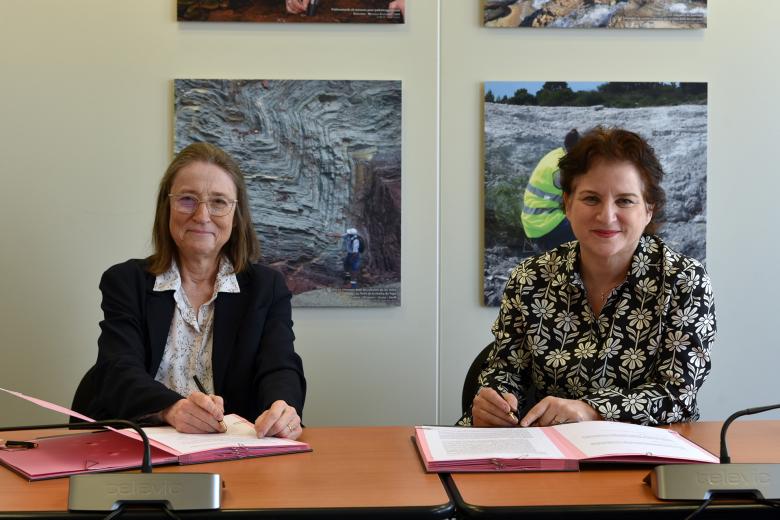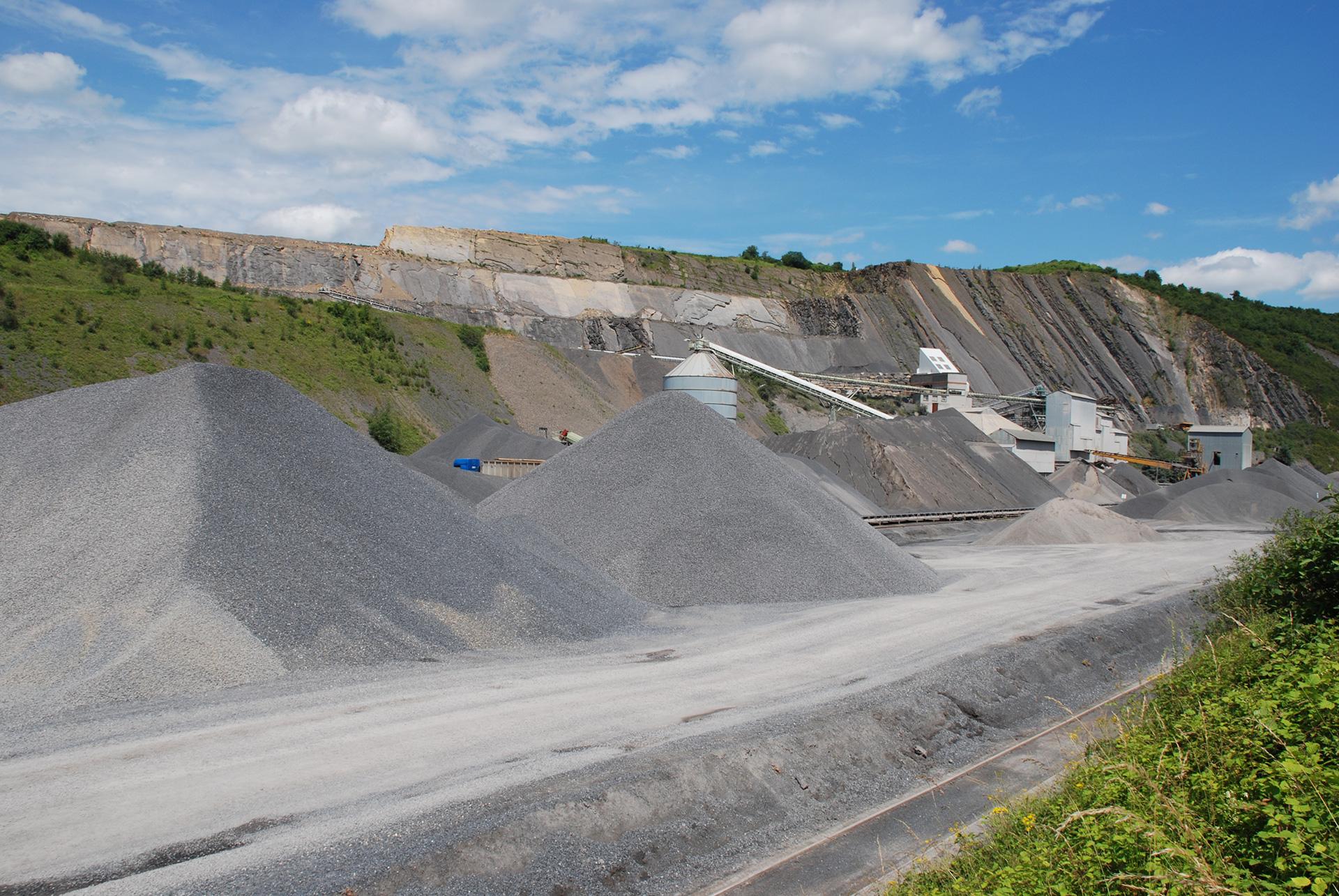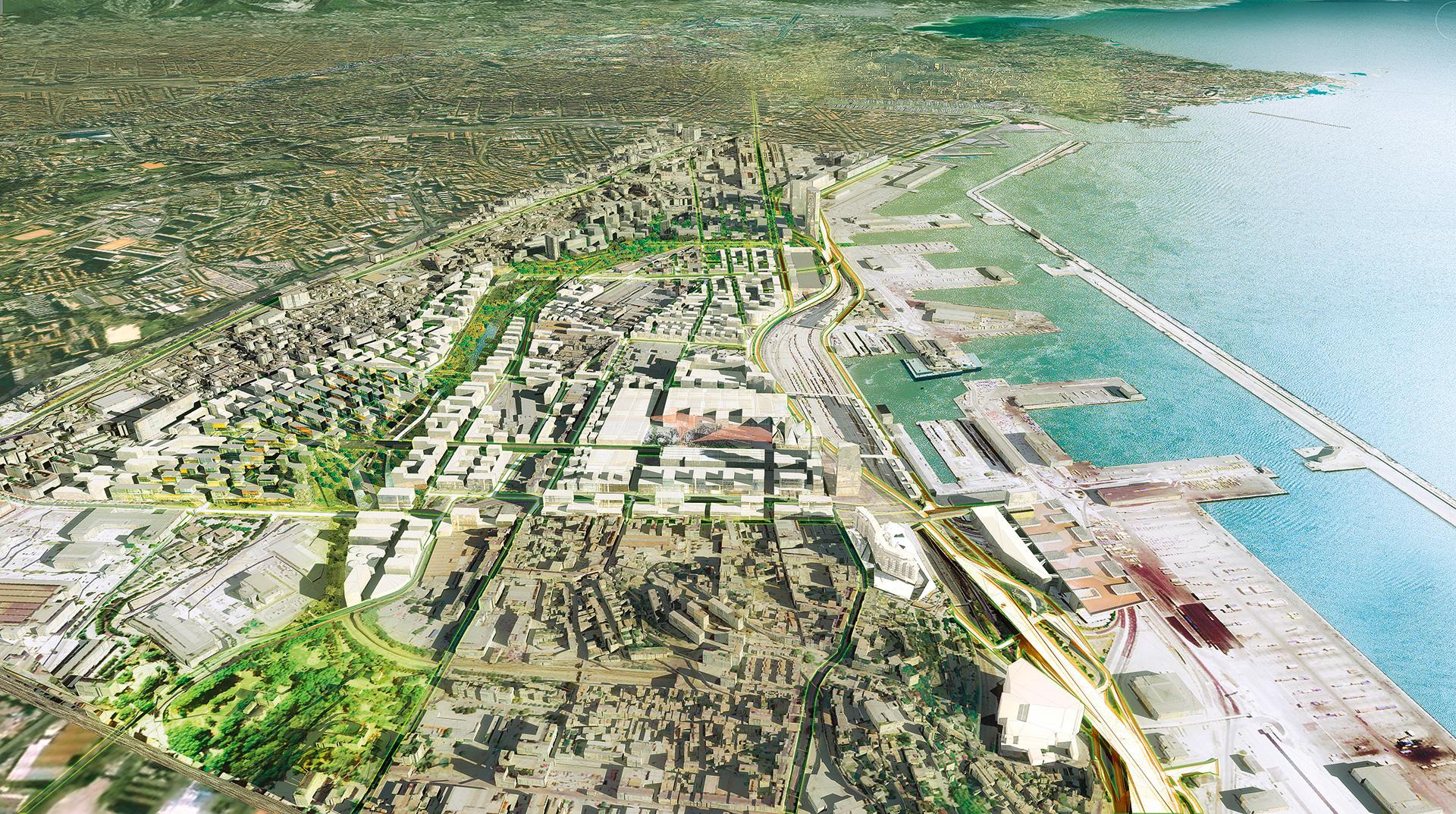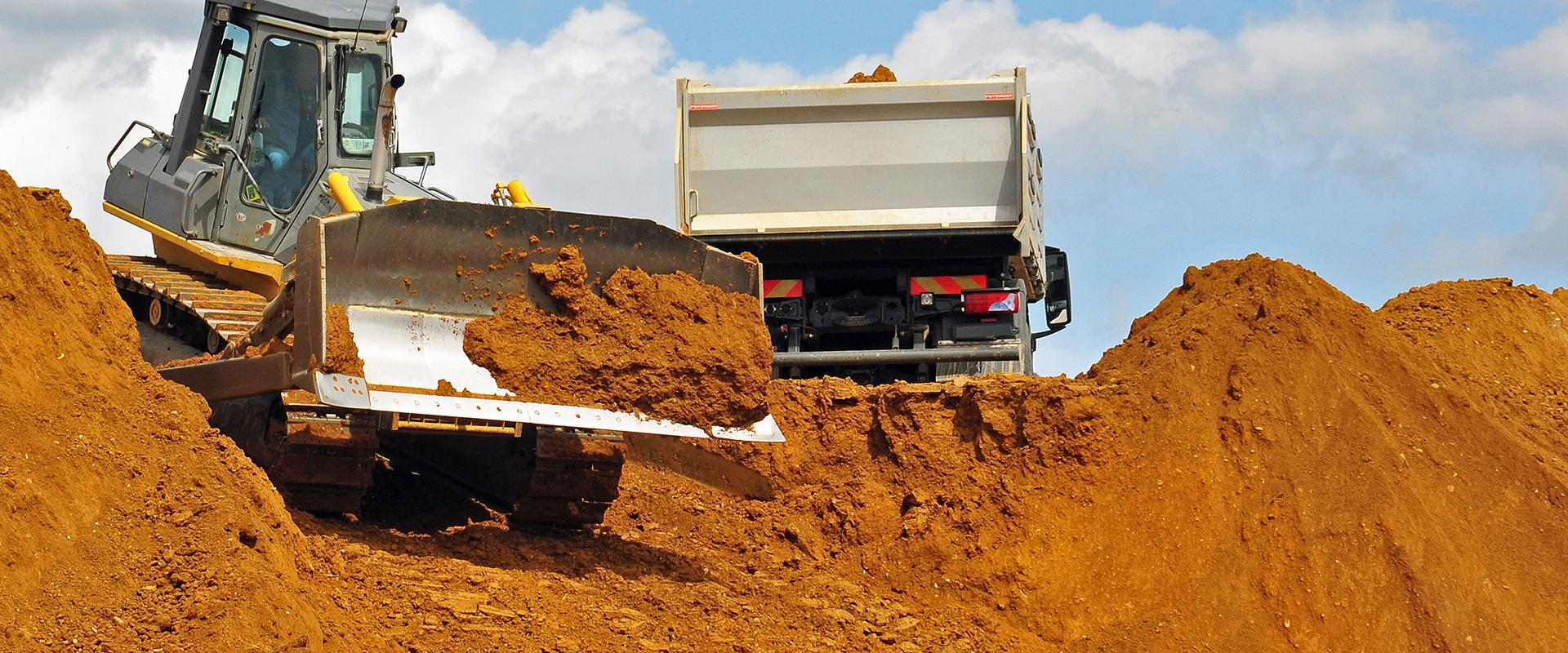
Michèle Rousseau, Chair and Managing Director of BRGM and Fadia Karam, CEO of Espaces Ferroviaires.
© BRGM
The role of Espaces Ferroviaires is to redevelop railway sites that are no longer required for operations, in the centre of France’s main cities. Its sustainable development strategy is based on four main priorities: low carbon, circular economy, new uses and services, nature in the city and biodiversity.
To pursue this aim, and also to make a greater contribution to the goal of Zero Net Artificialization (ZAN), Espaces Ferroviaires wishes to work with BRGM in order to:
- better understand and control the complexity of the soil and subsoil of its railway sites, in terms of pollution and energy resources as well as pedological and geochemical characteristics;
- develop a cross-cutting approach to land management and treatment, in keeping with the functions of urban planning and property development;
- take advantage of the long timespan of projects to trial new forms of land use, conduct soil remediation and fully exploit potential;
- better manage the natural and anthropogenic risks posed by its sites.

As a global player in urban transformation, Espaces Ferroviaires is committed to turning the land inherited from the SNCF into the urban districts of the future. Our aim is to create living areas and buildings drawing upon low-carbon, sustainable and resilient construction solutions to meet societal and environmental challenges. Regional sustainability and planning need to take account of natural and anthropogenic risks. By partnering with BRGM, we are seeking to improve the technical management of our sites in order to optimise the use of existing energy and material resources. BRGM’s support in managing geo-scientific and environmental data is fundamental to efforts to tailor the new concepts and tools of data science to the needs of Earth sciences, the environment and urban development.
BRGM’s role
BRGM will contribute its recognised expertise, know-how and resources to the partnership by providing, for example:
- strategies for soil requalification, expertise on subsoil geochemistry, pollutant behaviour, the construction of methods and indicators for monitoring soil remediation (ecological functions and services), in situ decontamination processes, and the redevelopment of brownfield sites (decision-support tools);
- solutions for rebuilding fertile soil from urban waste;
- recommendations for managing construction and public works waste, household waste and excavated soil.

BRGM is engaged in research studies to provide socio-economic players with operational solutions. Our agreement with Espaces Ferroviaires is a good example of this approach. The scale of these projects and their potential for innovation will enable BRGM to build on its efforts in this area, drawing upon its expertise, research capacities and experimental resources for the benefit of urban development projects addressing growing economic and societal demand in the short and medium term.
Objectives
This partnership will pursue several broad objectives:
- reclaim degraded areas,
- recover secondary materials as part of a circular economy approach,
- assess and exploit the heat potential of the subsoil to promote the production and storage of heat and cold,
- reduce natural and anthropogenic risks,
- develop integrated digital solutions for site management.
In particular, the partnership will focus on the upcoming development operations planned in Paris, at the Hébert and Jardin des Mécanos sites in the 18th district and the Messageries site in the 12th district.
Further information
Contact presse








